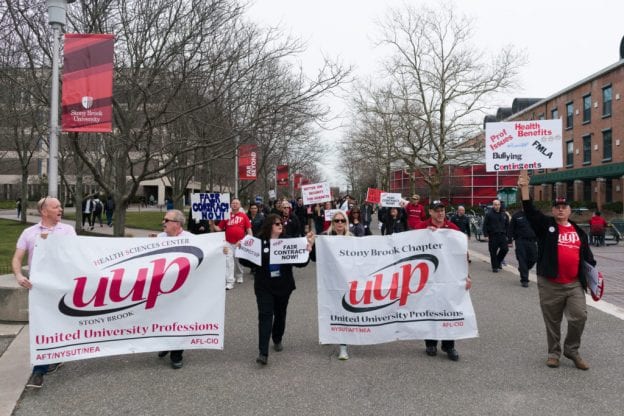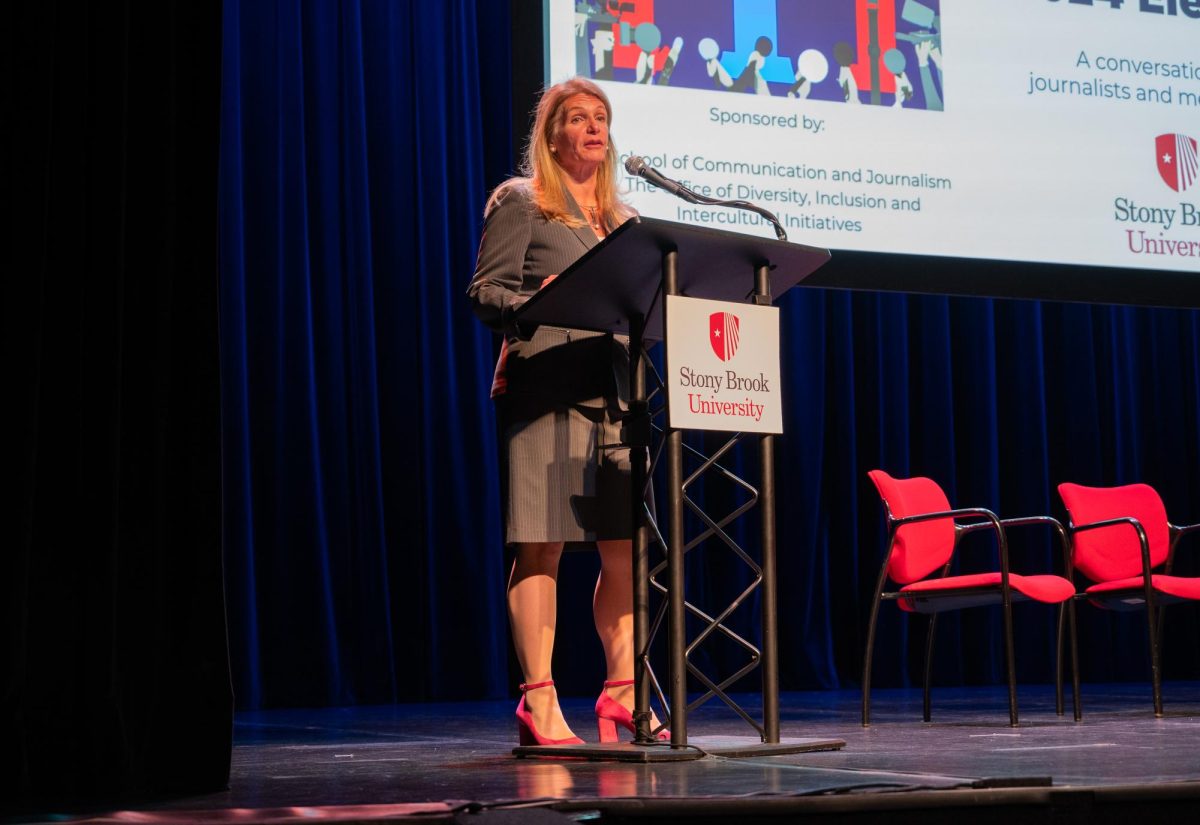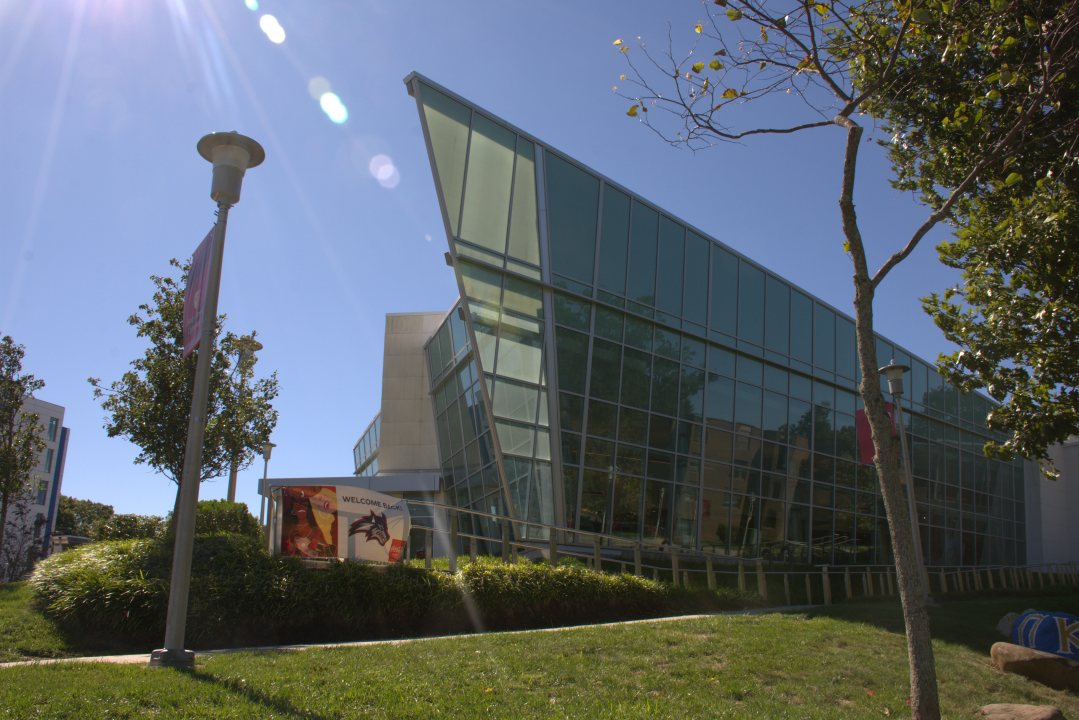
Correction July 31, 1:31 p.m.: An argument from the UUP committee statement that university guidelines violate medical privacy laws was deleted, because employers may ask for medical documents if work accommodations are requested. It was replaced with information about COVID-19 guidances from the U.S. Equal Employment Opportunity Commission, and a university definition of medical documentation. The article was also updated to clarify which Stony Brook UUP committee published the statement.
Stony Brook University’s United University Professions (UUP) West Chapter Equity, Diversity, and Inclusion Committee has spoken against a university decision that requires faculty who request to teach online in the fall to disclose underlying health concerns.
In a June 11 statement, the chapter called on the university to allow professors to teach online without offering justification, and to adopt Accessible Campus Action Alliance guidelines as the campus reopens.
The 49-page document, signed by hundreds of professors from across the U.S., argues that reopening campuses poses civil rights concerns, especially around “disability, racial, and gender equity,” and recommends best practices for reopening.
Right now, Stony Brook faculty members teaching classes with 45 or fewer students need to request approval to teach online in the fall, according to the committee statement. The request needs to be processed by the Office of Equity & Access and meet “the criteria for offsite work” before it’s approved.
Guidance released on June 9 by President-Elect Maurie McInnis establishes that remote work for “non-medical reasons” requires approval from Human Resources.
“Faculty members in the high risk 65+ age category are not being allowed to decide for themselves how they should teach in the fall, but are instead being told that they must have aggravating comorbidities to qualify for an exemption,” the committee statement read.
According to guidance from the U.S. Equal Employment Opportunity Commission, employers covered under the American with Disabilities Act (ADA) may ask employees during a pandemic “if they are experiencing symptoms of the pandemic virus.” During COVID-19, that includes “fever, chills, cough, shortness of breath, or a sore throat.”
The guidance notes that “employers must maintain all information about employee illness as a confidential medical record in compliance with the ADA,” separate from employee personnel files. Employers may also request medical documentation when employees submit accommodation requests.
According to Stony Brook University guidelines, “satisfactory medical documentation” includes “a brief statement of the nature of the illness, inclusive dates of disability and treatment, certifies that the employee is disabled from the performance of his/her job duties, includes prognosis and anticipated return to work,” and should be submitted on a health care provider’s stationary or FMLA certification form, with the health care provider’s signature.
The UUP committee criticized the university for establishing “health care as an individual responsibility” that does not consider “disability status, age, caregiving or childcare responsibilities, multi-generational households, access to healthcare, prevalence of ‘essential workers’ among minority populations, or other compounding risk factors.”
The union committee argues that these guidelines stand as a direct contradiction to the university’s recent statements on the Black Lives Matter movement, and its declared commitment to Black community members.
COVID-19 has taken a higher toll on minority communities, with Black communities in New York City dying at more than twice the rate as white communities. A recent study from the Centers for Disease Control and Prevention found that Black individuals were disproportionately hospitalized with COVID-19 — 33% of patients were Black, compared to 18% in the surrounding community.
“Black/African-American and other communities of color are overrepresented in the statistics for infection, hospitalization, and death from COVID-19,” the UUP committee statement read. “We know this because we are part of these communities. And the fact that faculty of color are being asked to justify the decision to keep our communities safe by teaching online is vexing.”
A UUP survey found that, among 320 participants, 46% reported equity concerns about reopening.
A university evaluation found that faculty and staff expressed a “palpable” fear of returning to campus, and concern for those at high risk. Many professors said they would be open to continuing remote instruction in the fall, and some suggested implementing hybrid courses. Others “strongly” expressed that they felt “online instruction is an inferior substitute for face-to-face interaction,” according to the report.
Many faculty and staff, however, pointed out that returning to campus would present a number of obstacles for many people. Some were concerned about childcare, while others pointed out that both students and employees rely on public transportation to get to campus.
The Accessible Campus Action Alliance guidelines argues that existing American Disability Act (ADA) protections for COVID-19 are not inclusive. For instance, ADA protects faculty members 65 and over, who are considered to be at a higher risk for COVID-19, but does not consider that a professor who is 64 is likely at similar risk.
The guidelines further argue that procedures requiring students, faculty and staff to submit medical records to justify accommodations in the fall could put them at risk for medical stigma, or perpetuate stigmas that already exist in the medical field. Many people, especially those in marginalized communities, don’t have access to extensive healthcare.
One respondent in the university evaluation said they were concerned that the university would not go online in the fall, and expressed concern about potential stigma and repercussions for individuals who request accommodation.
“As an immuno-compromised junior faculty member, I worry about the repercussions of some faculty requesting to teach online only, and that being seen as an attempt to dodge teaching on campus,” the respondent said. “Without a blanket policy, we risk forcing those with disabilities and immunity issues to communicate personal information to our respective departments that could potentially put us at a disadvantage when it comes to review.”
Existing procedures also don’t account for campus community members who live with a family member who is at risk, according to Accessible Campus Action Alliance guidelines.
Instead, professors recommend that universities allow all classes to go remote in the fall and limit campus activities. They also argue that universities should not require documentation to allow remote accessibility to students, faculty and staff, and that schools should maintain and extend existing accessibility services and mental health resources.
The UUP committee pointed out in its statement that the U.S. Department of Education is allowing distance learning through the end of 2020. The Centers for Disease Control and Prevention has dictated that schools may not reopen unless they’re prepared to meet local and state guidelines, able to screen students and employees for COVID-19 symptoms and ready to protect students and employees at higher risk for the illness.
Crystal Fleming, a sociology professor at Stony Brook University and a member of the UUP Equity, Diversity and Inclusion Committee, said that she completely endorses the union’s stance.
“Given the fact that New York has been the epicenter of COVID-19, I am hopeful that the administration will respond to our significant concerns by enacting a reopening policy that values the lives and wellbeing of our students, faculty, staff and empowers community members to teach and learn remotely in the midst of an ongoing pandemic without being forced to provide private health information,” she wrote in an email.
The university did not respond to a request for comment before this article was published.
















